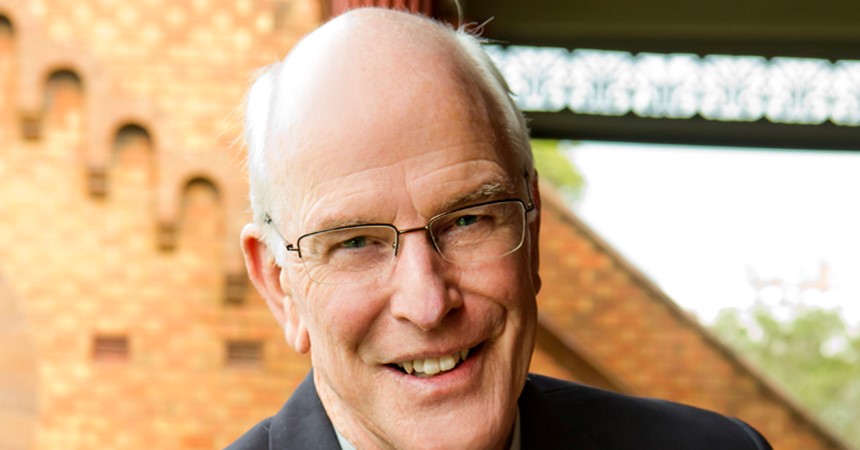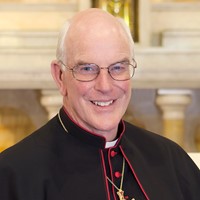This quest for samples of happiness arises from a recent Sunday morning experience. On my way home from somewhere I pulled into a petrol station to fill up and, having done that, went in to pay. No one else was there but the man behind the counter, but he fairly beamed at me; a great big welcoming smile and ‘Good morning, how ya goin?’’ or words to that effect. We probably rattled on for a few seconds about the beautiful sunny day or something, and then I was off. “Well, see ya then. Have a good day.” He was just a happy, friendly character. And I thought, “I’ve just come from Mass and morning tea with all those good Catholics, and yet this is the first really friendly greeting I’ve had today.”
Okay, I can see one of the things you may be thinking, and I’m happy to acknowledge that, yes, these days the bishop is sort of the complaints department of the church. But it wasn’t that. The people at the parish hadn’t been whinging, they just weren’t overly friendly. At morning tea they would have talked to the people they always talk to, probably about pretty much the same things they always talk about, and then they went on their way, getting on with their lives. You can’t call that ‘unfriendly’, just sort of non-friendly. And, yes, the bloke in the servo may have had an eye on encouraging business by being friendly to a customer. He seemed genuinely happy and friendly to me, but perhaps he was trying hard to be. But doesn’t that merely raise the question, why aren’t church people trying?
Hugh Mackay’s book-before-last was about the pursuit of happiness or, as the title had it, The Good Life. I loved the first few chapters because he got stuck into all the illusions of the twenty-teens that I tend to pour scorn on myself: the attempt to be perfect parents, to have perfect kids, perfect homes, perfect teeth and God-knows-what. He goes through the illusions that the next big move, the next big purchase, the next self-improvement course, the next gym session perhaps, will bring everything just right and hunky-dory. Whatever we are looking for in life, to make ourselves happy, there’s a product just for that and, if there isn’t, the government should do something about it. It’s great fun to read. As I said at the time, not only could I have written a lot of this, I think I actually have written it.
The ultimate point of Mackay’s book, however, was that he had discovered, as a social researcher, that you don’t find happiness by seeking happiness. When it comes to satisfying our own wants and needs, we are insatiable. No product, no possession ever delivers the happiness it promises, so we have to keep trying and trying, keep buying and buying. “Well d’uh,” you might say, “we all know that.” And indeed we do. Plato already knew it way back then. The philosophers have technical jargon for it: “Happiness cannot be sought thematically”, if I recall correctly. In other words, you don’t get to be happy by trying really hard to be happy. Being happy comes as a by-product of something else.
And what is that ‘something’? Well, according to Mackay, it is simply being good. It is putting others before yourself, trying to be helpful, trying to do some good with your life, looking to make others happy, looking outward and not limiting your concern to what matters directly to you. There are other descriptors, but you get the picture. The Good Life is not what we imagine when we speak of ‘living the good life’, it is what comes from living a good life, being a good person. If I am not mistaken, and I don’t have the book before me today, Mackay actually quotes the Golden Rule and its many close variants across religions and cultures: Do unto others as you would have them do unto you. That, apparently, is the secret. Or, to put it another way, if a friendly service station guy can brighten up your day, couldn’t you try to do that for someone else?


























































































